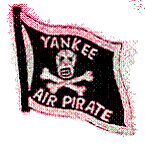Mike Scholl
Posts: 9349
Joined: 1/1/2003
From: Kansas City, MO
Status: offline

|
quote:
ORIGINAL: Honda
A few months ago, I saw a documentery on Discovery, I think, about a what-if scenario regarding PH. The idea was to see what would've happened if USN took the warning before the daybreak (and took it seriously) and came out to play. The conclusions were that it would've been a catstrophe for USN. The main reasons were:
1. The old doctrine that BB was the queen of the seas was still hard-coded in Kimmel and BB fleet would have probably been sent out to engage the KB
2. After being hit, US vessels would suffer much more from flooding and after sinking they would stay sunk on the ocean floor
3. USN AAA was not as deadly as later in the war
The "panel" consisted of some 10 experts, most of them veterans. This wasn't unanimous, however, one vet was very dissapointed and insisted the Japs air powere would have been blown to pieces with very little damage to US forces and that the Kates (which were that main argument of Jap superiority in the imagined conflict) were in fact crap-mobiles made of paper and their torpedos couldn't hurt US BBs 
He didn't stand down, and insisted he was right till the end.
This was all from memory so don't resent if I missed something. I think I got the gist of it, though. WitP and WitP related reality have their own way of blending together very easily. 
One HUGE error in this speculation. There is no way in Hell the US fleet could have gotten steam up to sortie even based on the earliest "sub spot" warning. So the Fleet was still going to be in PH when the Japanese airstrike arrived. The biggest difference in the units of the Fleet would be in the state of rediness. Guns fully manned and ammunition ready, all water-tight doors closed, Damage Control manned, that sort of thing. Most of the difference would be in the Ground and Air Units. Even historically, the second wave of the Japanese attack sufferred much higher casualties than the first---and that was only with what preparation could be accomplished among the chaos of the first waves assult. Even one full hour of warning would have given the Japanese a much more formidible problem.
Oddly, this was much more like what the Japanese themselves expected. Their own loss predictions were as high as 50% of the A/C involved, and possibly a carrier or two as well. They still would view this as a success if the Pacific Fleet could be hobbled. And the fleet would, in all likelyhood, still have been "crippled by the assult. Oklahoma might not have turned turlle were she better prepared, but plenty off damage would still have occurred. The "victory" would have been less, and the losses greater, but the result in the short term wouldn't have changed a lot. The Japanese losses would have come back to haunt them a few months later when the carrier contests began, and a weakened Kido Butai had to face the US counter-moves.
_____________________________
|
 Printable Version
Printable Version














 ).
). 



















 New Messages
New Messages No New Messages
No New Messages Hot Topic w/ New Messages
Hot Topic w/ New Messages Hot Topic w/o New Messages
Hot Topic w/o New Messages Locked w/ New Messages
Locked w/ New Messages Locked w/o New Messages
Locked w/o New Messages Post New Thread
Post New Thread